Behavioral health clinics strive for positive patient outcomes, but complex billing processes often hinder their efforts, with negative implications for all involved:
- Providers waste valuable time on administrative tasks such as insurance verifications and denial management instead of focusing on patient care.
- Patients frequently feel overwhelmed by the complexities of medical billing and may struggle to understand their financial responsibilities.
- Payors receive claims backed by inadequate documentation and have to search multiple databases for patient records.
The resulting inefficiencies delay payments and result in higher costs across the board.
It doesn’t have to be this way. Revenue cycle management (RCM) software streamlines administrative tasks, allowing providers to focus on patient care while maintaining business operations.
Benji, a Hansei company, offers a full-service, automated, AI-driven software platform designed to address the distinct needs of behavioral health professionals. Call 888.670.6388 or contact Benji online to learn more about how Hansei’s 10+ years of behavioral health RCM services inspired one of the most innovative software platforms in the space.
Call 888.670.6388 or reach out online to learn more about Benji and how our expertise can elevate your clinic’s RCM capabilities. You won’t regret it.
What Is Revenue Cycle Management (RCM)?
Revenue cycle management is the process of utilizing medical billing software to track patient care from registration through to final payment. The software automates repetitive, time-consuming tasks such as claims management, denial tracking, insurance verification, and patient billing, allowing providers to spend more time caring for patients. Automation reduces human error, ensuring that all claims include accurate coding and documentation, which in turn reduces payment processing times and minimizes claim denials.
Patient accounts serve as a comprehensive record of patient information, including insurance details and past financial transactions. Monitoring key performance indicators (KPIs) enables healthcare organizations to assess their financial health by identifying trends, optimizing processes, and driving superior financial outcomes without jeopardizing patient care. The best RCM platforms also ensure data integrity and enhance compliance with ever-changing regulations. Revenue cycle management technology facilitates healthcare’s transition from fee-for-service models to value-based reimbursements that better reflect modern delivery models.
What Effective Healthcare RCM Looks Like
An effective healthcare revenue cycle management process can improve your organization’s financial health and profitability while also boosting patient satisfaction. Here is a step-by-step guide to what efficient RCM looks like:
1. Patient Registration
Collecting complete, accurate demographic and insurance information from patients upfront minimizes the risk of claim denials later.
2. Insurance Verification
Automated eligibility verification helps confirm coverage details, reducing denials for a consistent revenue stream with minimal ongoing time investment.
3. Charge Capture and Coding
Healthcare services are documented and translated to medical codes to expedite billing. Regular software updates can facilitate continuous employee training and keep coding up to date.
4. Claim Submission
Claims are submitted to insurance companies accurately and promptly to avoid preventable denials and maintain a steady cash flow.
5. Denial Management
RCM software helps identify why claims were denied, appeal when necessary, and correct errors to recover lost revenue.
6. Patient Billing
Transparent billing practices, including effective patient communication, improve patient satisfaction and payment consistency by ensuring patients understand their responsibilities.
7. Payment Posting
Payor and patient payments are recorded in the RCM software, providing healthcare providers with easy access to their complete revenue cycle.
8. Collections
Proactive collection strategies minimize revenue leakage by following up on all unpaid balances in a timely manner.
Notably, frequent turnover hinders RCM due to the time invested in training employees. High retention rates are essential to streamlined revenue generation.
Who Benefits from Revenue Cycle Management?
Healthcare providers generally adopt RCM software to improve their own financial and operational performance, but payors and patients also benefit from a structured approach to managing payments. Here is a brief rundown of the benefits for each group:
Providers
- Increased cash flow
- Enhanced efficiency
- Improved compliance
- Superior patient experience
- Automated insurance verification and claim submission
- Continuous staff training
Payors
- Reduced administrative overhead through efficient billing
- Smooth payment cycles through automated reminders and electronic payment systems
- Centralized documentation of patient care for audits and compliance checks
- Improved provider relations
- Reduced operational costs
Patients
- Simplified billing eliminates patient confusion
- Convenient online bill pay
- Cost estimates before treatment
- Transparent communication regarding the patient’s financial responsibilities
- Faster resolution of billing issues
- Better access to care through efficient authorizations
- Personalized care plans
Providers, payors, and patients are often depicted as adversaries in healthcare, meaning that something beneficial for one group may be detrimental for the others. Effective RCM processes benefit everyone involved.
The Unique Challenges of RCM for Behavioral Healthcare Providers
RCM is essential for all healthcare providers, but behavioral healthcare providers (including therapists, counselors, psychologists, substance use disorder treatment centers, and other mental health professionals) face unique challenges. Behavioral healthcare providers must deliver compassionate, comprehensive care on an ongoing basis without compromising service quality. Furthermore, reimbursement often requires detailed documentation.
Behavioral healthcare providers face shifting authorization processes based on the level of care administered, Medicaid-specific rules, and reimbursement tied to clinical milestones or utilization reviews that don’t always translate to individual patient needs. Worse, the behavioral healthcare industry faces increasing complexities due to ever-changing regulatory requirements and insurance bureaucracies.
Where most revenue cycle management systems fall short
Sadly, many RCM solutions treat behavioral healthcare as an add-on and simply aren’t equipped to handle the nuances. For example, many systems have notes that aren’t geared toward group therapy. Some have clunky workarounds that require providers to spend hours documenting each session. Likewise, existing templates often force medical models over psychosocial ones or assume an episodic model (one visit = one bill) when long-term, multidisciplinary treatment plans characterize behavioral health.
Generic RCM solutions often lack native support for level-of-care transitions and compliance reporting, such as those outlined in Certified Community Behavioral Health Clinic (CCBHC) or American Society of Addiction Medicine (ASAM) guidelines. This forces providers to bend their workflows to accommodate their software when it should be the other way around.
Your team doesn’t have the time to memorize compliance rules, and expecting providers to complete claims forms manually when different payors have different requirements is a recipe for trouble. That trouble often means denied claims and unreliable cash flow that could doom your business even if you provide top-notch care.
Introducing Benji: The RCM Solution Designed Specifically for Behavioral Healthcare Organizations
Behavioral healthcare is essential, and demand for services like addiction treatment and mental health counseling is increasing rapidly. Behavioral healthcare providers deserve RCM software tailored to their specific needs, and that’s exactly why we created Benji.
Hansei identified a need for a user-friendly platform built to streamline behavioral health workflows and simplify documentation processes, and created a dedicated technology solution to address this need. Behavioral health experts with firsthand clinical and financial experience built Benji, so it’s not a generic system like many other solutions.
Instead, Benji provides a robust suite of services with a strong focus on revenue, revolutionizing how you manage your financial processes while driving improved sustainability and growth. Think of it as your organization’s administrative sidekick so you and your team can concentrate on what you do best: delivering high-quality patient care.
Here are some of the features that help Benji stand out:
Automated Claims Submission and Tracking
With Benji, documentation and billing speak the same language. Provider documentation is used to create claims, reducing errors and redundancies. Any documentation gaps are also flagged before claim submission to minimize preventable denials and ensure consistent cash flow.
Automated Insurance Eligibility and Authorization Workflows
Insurance verification and authorizations can be time-consuming, so let Benji do it for you. Automatic authorization expiration reminders will let your team know when it’s time to take action to avoid potentially costly denials.
Payor-Specific Form Logic
Variables such as note frequency and required attachments vary between payors. Benji’s smart forms automatically adapt to payor-specific rules, including ASAM levels, Medicaid, and the Joint Commission, to minimize reworks. Compliance guardrails are also in place to ensure your practice complies with all pertinent regulations without requiring team members to memorize specific details.
Real-Time Billing Dashboard
Benji’s real-time billing dashboard gives your finance team the data they need to analyze performance, identify trends, and maximize profitability without compromising patient care. You can also track outstanding balances to optimize patient collections.
Centralized Data Storage
Benji combines revenue cycle management with electronic medical records (EMR) capabilities, giving behavioral healthcare providers access to all their information in one convenient location. All data is protected by HIPAA-certified encryption, ensuring your organization protects patients and maintains compliance.
Scalability
Benji is designed to grow with your organization, accommodating ever-increasing patient numbers without compromising service or quality.
White-Glove Onboarding and Support
Hansei is known for outstanding customer service. In-person onboarding support is available to train your entire team based on your specific workflow needs, when most of our competitors offer remote support only. We can also help with data migration and will always be available to answer any questions you have, even years after installation.
All of these features add up to results. Behavioral healthcare clinics report up to a 20% increase in patient volume after adopting Benji. It’s tough to argue with numbers like that.
A Better Billing Process Starts with a Conversation
As a behavioral healthcare provider, you shouldn’t have to choose between patient care and profitability. Luckily, you won’t have to with a great revenue cycle management platform like Benji at your side. Our advanced technology can help you simplify billing, reduce denials, improve patient satisfaction, and boost profitability without compromise.

